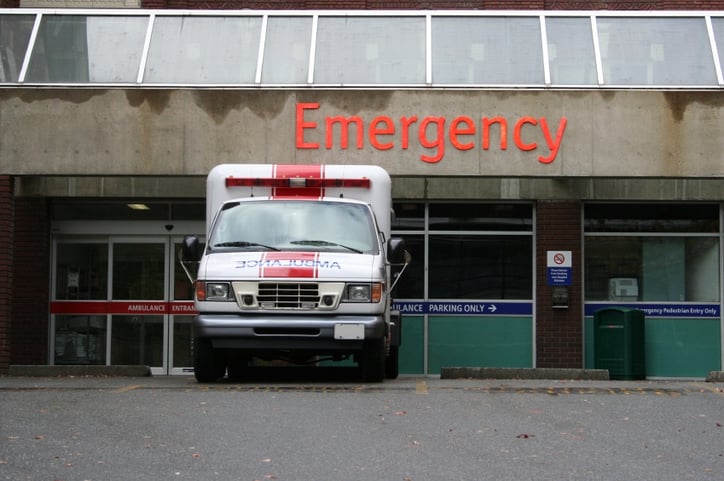
Although most hospitals have in-wall suction, there are situations when rechargeable or alkaline battery-powered aspirators are a better alternative, or possibly even the only option. When those situations arise, you need to be confident that portable suction units are ready to operate and that they can provide the level of suction you need for any type of patient, including children and neonates.
In areas of the hospital not served by in-wall suction and during those times that AC power is not available, having a rechargeable or alkaline battery-powered aspirator on hand allows you to deliver the proper care to patients, no matter where they are.
Why Hospitals Need Battery-Powered Aspirators
Some instances where alkaline or rechargeable battery-powered aspirators might be necessary include:
1. During patient transport
When moving a patient during a flood or other unexpected disaster that impacts the hospital, or during a transport through areas of the hospital with no available vacuum, having suction available is critical. Making sure you have enough equipment to treat multiple patients at the same time is also vital in an emergency situation. A portable alkaline battery-powered aspirator will ensure that you have suction in hallways, patient rooms, waiting areas, or anywhere in-wall suction is not available.
2. On crash carts
A crash cart should have all the essentials required for resuscitation and suction is certainly on that list. But when you bring a crash cart to a patient, there is no guarantee that they will be near a power source or an in-wall suction outlet - so having rechargeable battery-powered aspirator on board is always a good idea.
3. As surgicenter backup
Suction is an essential component of every operating room environment. As such, virtually every operating room has in-wall suction. However, in-wall suction can occasionally fail. If this happens, you need to have backup suction immediately available.
4. In the event of power loss
Natural disasters, mechanical failure, acts of terrorism, and other unpredictable events can cause hospitals to lose power. Even with emergency generators in place, it’s important to be prepared for any eventuality. What would happen if your hospital lost power for several days, or even just several hours? Having alkaline battery-powered aspirators and other emergency equipment available that doesn’t need to be re-charged will allow you to care for critical patients and transport them safely to another facility.
Additionally, natural and man-made disasters often result in a greater number of patients who require urgent treatment. Note the number of ‘non-traditional patient venues’ that were established during the recent COVID-19 pandemic. Do you have enough vacuum capacity to handle a large influx of patients if you have no electricity?
While battery-powered aspirators may not be routinely used, they provide a portable solution for emergency suction situations. The device that you choose and rely on should provide a complete range of negative pressure so you can use them with most patients.
In-wall suction is available in virtually every modern hospital, but sometimes it is simply not enough. Equipment failure, the inability to provide mobile suction, power loss risk mitigation, and limited access in all areas of the hospital mean that battery-powered alternatives are required to ensure hospitals can maintain the highest standard of care in any situation.
If your hospital does not currently have battery-powered aspirators on crash carts, in operating rooms, or available for patient treatment and transport during a power outage, consider adding them as soon as possible. In the event of a patient emergency or disaster, these devices are invaluable.
Editor's Note: This blog was originally published on May 29, 2015. It has been re-published with additional up to date content.














